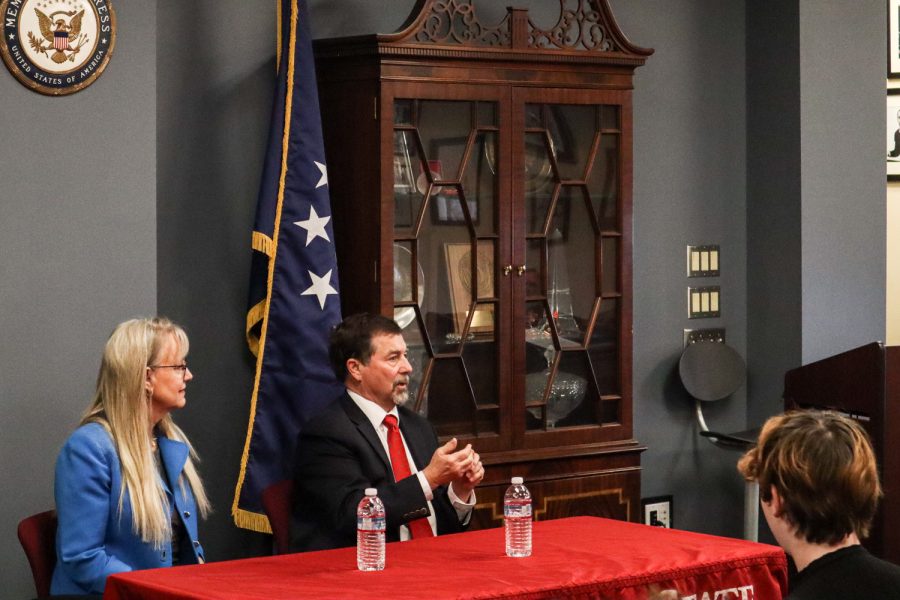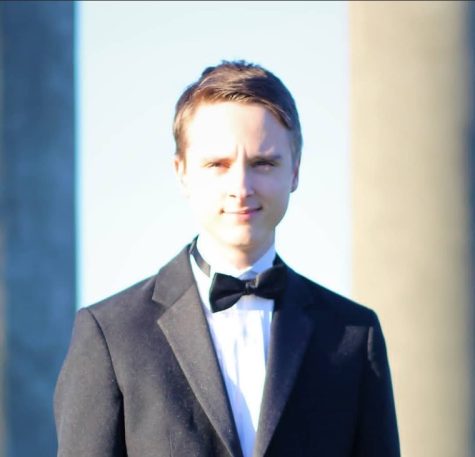Washington legislators talk opioid crisis, climate change
WSU’s Thomas S. Foley Institute held final event of the year Tuesday.
Sen. Mark Shoesler said affordable housing solutions should come from the private sector.
December 7, 2022
Politicians from the ninth legislative district discussed affordable housing, climate change and drug use at the Thomas S. Foley Institute’s final event of the year Tuesday.
The two members of the state legislature who came to answer questions ahead of the 2023 legislative session were Sen. Mark Schoesler and Rep. Mary Dye.
Schoesler said he expects he will be the ranking Republican in the senate budget committee and will probably continue on the labor and commerce committees, while Dye will be staying on the appropriations committee.
“The two years of being siloed in our own Zoom meeting wasn’t helping for public policy,” Dye said. “I think people really want to repair some of the damage from being apart.”
Schoesler and Dye both voted “no” on a recent climate change bill meant to limit carbon emissions, which they said has nothing to do with past donations they have received.
“This was about the people I represent and their economy,” Schoesler said.
An attendee asked Schoesler if the bill hurts his constituents, many of them farmers, to vote against a bill meant to consolidate the effects of climate change. He said his vote is beneficial to the agricultural community.
Dye said she is looking forward to her second term as a ranking member of the environment and energy committee.
Schoesler also believes issues with affordable housing should be solved with organizations, like Habitat for Humanity, through the private sector. Private sector real estate contributed to his campaign, but Schoesler said his position on affordable housing is separate from that.
“If we look at housing, government housing is slow, cumbersome and overpriced. There’s so many people with their beak in the troth getting something and it’s expensive,” he said.
In relation to his position on the current opioid crisis and opinion on the “safe injection” zone in Seattle, where people can freely use illegal substances, Schoesler said he does not support safe injection zones.
“What I think we have to do is revisit the Blake decision,” he said. “I think we got a pretty good block of people who think Blake was wrong. Full legalization is not the answer … It was the dumbest ruling I ever heard of.”
Entering the 2023 legislative session, Schoesler said his main goal for the next session will be organizing the senate budget and doing it in a bipartisan way.
“At this point in my career I want to have something I’m interested in and not just taking up space,” he said.
Despite threats to democracy within the U.S., such as political candidates pushing “the big lie,” Schoesler said he is confident the country will survive.
Schoesler believes some people have lost confidence in the voting system because of how easy it has become to manipulate voting in recent years, and he said he did not believe Loren Culp was the real winner in the 2020 Washington gubernatorial election.
“If you go back and look at some of the previous elections, we’ve survived worse,” Schoesler said. “I think we need to work to maintain individual confidence in voting.”











